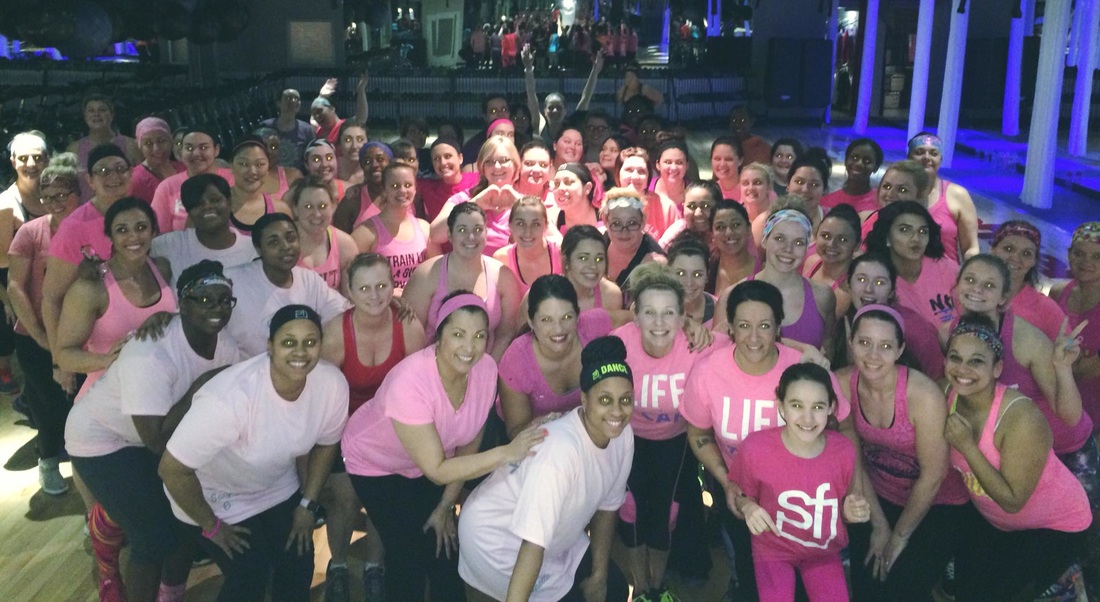 The bass of a hip-hop song thumped in my chest as I hurried into the building. The song’s notes floated in the air, growing louder and clearer as I got closer to the entrance. My legs and stomach buzzed with excitement, my heart beating in time with the music as I looked down to make sure my sneakers were tied and double-knotted. I walked past two women on the sidewalk as I approached the front door, the music louder than ever now. Wearing thick workout headbands and shirts that read “LIFE OVER FEAR,” these women had that familiar pinkish hue on their faces—all sheen and smiles—when you just finished a great workout class. I could tell they felt good. Good about themselves. Good about life. We exchanged smiles as we passed each other, these women returning to one world—a world where our problems exist and cell phones ring and work never ends and the house has to get cleaned— while I walked into another world: A world full of conversations and upbeat music. A world where problems melt away. A world where the people are planets, all different shapes and sizes and ages, orbiting around a sun of a stage where the workout instructor stands and leads us all into an entirely different galaxy. This world is one of support. This world is one of empowerment. It’s a world where Zumba class is not just Zumba class, but a fun night with friends where you can dance your problems away. It’s a Monday night. And as the saying goes here at Sarah Fechter Fitness, “On Mondays, we dance.” I didn’t know this world existed. Not at first. My friend Emily introduced me to Zumba at Sarah Fechter Fitness (SFF) about a year and a half ago. Prior to this Zumba discovery at SFF, working out had always been the same to me: repetitious, necessary, difficult. Enjoyable? Yes/sometimes. But very individual. I was a lone ranger running laps or doing a kickboxing class with little interaction with others. From this first Zumba class, though, I was hooked. The upbeat music and Zumba choreography was more hip-hop and jazz than other Zumba classes that I was used to. I liked it. The choreography and eight-count beats were nostalgic reminders of my former dance days. This class was stress-relief at it’s finest for me. A place where the music carried the worries away, scattered from your head to your heart to your sneakers, until they are left on the smooth wooden gym floor under the dim blue and red lights. After a few classes at SFF, I could tell the culture at this fitness studio was different. People were both openly genuine and generous. For example, when I tried out the hip hop step class, a woman who worked out next to me helped me put away my step bench. I didn’t know her or ask her to help me; she just did. Another time, a girl helped me clean my step bench. High fives? Constant. Encouraging shouts and generosity? Common. In a society that often pits women against each other, it was clear to me that the culture in this place was not one of me vs. you, but rather, a place of empowerment and inspiration. Building up, rather than tearing down. Positivity. Diversity. Acceptance. All present under one roof. One Monday night at Zumba class, though, I witnessed something so inspiring and empowering, tears welled up in my eyes as I stood on the gym floor. It’s been months since it happened, and I still get goosebumps when I talk about it: It was a Monday night in March. Hours before the Zumba class’s scheduled start time, a post on SFF’s Facebook page encouraged Zumba-goers to wear pink to class that evening. “Tonight, we welcome back a dear friend who was gone for awhile, but has won her battle! And what a better way to celebrate than a PINK OUT!” another Zumba-goer wrote. “Hm,” I thought. Though wearing pink was optional and I had no idea who this person was or the conditions of her battle, I wanted to show support. I dug through my dresser drawer, pulled on a magenta-pink workout shirt, pulled back my hair, put on my sneakers and headed off to Zumba for this Pink Out workout. As I walked in the door to the fitness studio, the energy was electric. Women wearing pink of every shade—pastel pink, hot pink, magenta—stood side by side. The time read 7:30 p.m. and Sarah started the class per usual. We spent the next hour shimmying and dancing and Zumba-ing like we did every week. But then, with five minutes or so left in the class, Sarah stopped. She went over to the iPod plugged into the speaker and changed the song. As soon as I heard the first few notes, I recognized the song immediately. A song I loved and danced to in my bedroom years ago: “Survivor” by Destiny’s Child. Sarah turned to a group of ladies in the front right corner of the room, clapping and motioning to them. “We want to welcome back one of our family members,” Sarah said. One of the women wearing a pink shirt had SURVIVOR written on the back. This was the woman, I realized, we were honoring tonight through this Pink Out. She had fought breast cancer and won. She WON. She was back. Back at her favorite Zumba class surrounded by friends and strangers who, in this moment, all were family were surrounding her with love and support. Goosebumps prickled my legs. Tears gathered in my eyes. The energy in the room was tangible as I glanced around at this room full of people, some I knew and some I didn’t, all pouring out love and support to her. Then, after some coaxing, the woman and her friends joined Sarah up on stage for the end of the song. The woman stood there, hugging Sarah and clapping along with the music and us. Now, more than ever, the words of this Survivor song had more meaning. We clapped to the beat of the song’s chorus as Beyonce sung its lyrics one last time: “I’m a survivor I’m not gonna give up I’m not gonna stop I’m gonna work harder I’m a survivor I’m going to make it I will survive And keep on surviving” We all stood there, looking up at this survivor, this warrior of a woman, and we applauded. The sounds of our collective clapping echoed through the room we whooped, hollered, clapped. And clapped. And clapped. I clapped for her, pressing my palms together hard and fast. I clapped for my grandma who died of breast cancer. I clapped for all of those women fighting breast cancer now, the women I know and the women I don’t know. It was an amazing moment of connection and community. The fact that I didn’t know her made it all the more real, as it showed me that you don’t need to know someone personally in order to respect them or appreciate their experience and strength. Battles are hard. We often feel we have to fight certain fights alone. But we all need our people, whether our people are by blood, by roots, by church, by gym. And when that battle is fought and the long trek is over, it’s always great to come back home.
3 Comments
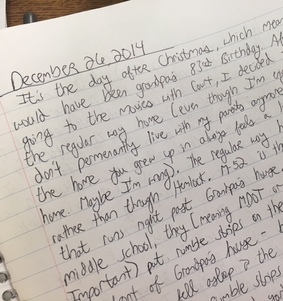 While searching for a blank notebook in my file cabinet at work today, I stumbled upon a spiral-bound, one-subject, wide-ruled notebook with a red cover. I nonchalantly flipped through the pages full of notes scrawled in my chicken-scratch shorthand. Blue ink here, black ink there, To-Do list headers and checkmarks and things that mattered then that don't matter in that urgent, crucial way now that time has passed. As I searched for a blank page to begin a new To-Do list, several pages filled with my handwriting--intentional words, written with thought and time, not hurried and rushed scribblings like the others--made me double-back. I stopped. I scanned. I dove in, recognition raining down on me like a cold shower as I read my own words. My emotions--spilling out of my brain and heart and bleeding through black ink on these blue-lined pages-- took me back in time. "December 26, 2014," I wrote in at the top of the page with an underline. "It's the day after Christmas, which means it would have been Grandpa's 83rd birthday..." My grandpa had unexpectedly passed away in November 2014--a mere month before I wrote these words in this red notebook. The wound was still fresh when I wrote this, the pain still raw. I remember my face looking as blank as these pages once were, my heart torn and red like this notebook cover. Time heals. It does. But all it takes is a movie, a song, a smell, a journal entry, to take you right back like an emotional time machine. Our brain is a train, moving forward and pressing on and using logic to categorize our memories and sort them into little boxes on shelves we can open and close at will. But the heart? The heart is like an elephant: It never forgets. I miss a lot of things. I miss my grandpa. I miss bike rides on Pine Street in St. Charles. I miss smoothies with friends in the pool and girls nights in dorm rooms. I miss certainty. I miss unscarred hearts and Keds sneakers and Spice Girls cassette tapes. I miss a lot of things. I miss a lot of people. Sometimes, I miss me. But the missing makes us human. The missing is a signal, a cue, a sign: Missing means we aren't where we used to be anymore. Missing means change. Missing means growth. Nowadays, I drive by my Grandpa's house and the pangs of sadness don't hit me as strongly, poking my ribs and my chest and my stomach with memories. The current homeowner has done some work, installing a new entrance. And I like that. I like that he's making it his own entryway. He is making a new way to step into something that matters to him, as he should. He's beginning a new chapter, just as we all are as we move forward. Day by day. Moment by moment. But sometimes, you stumble upon something that takes you back. And that's okay, too. Below is my red notebook journal entry. I wrote this for no one but myself, which is why I wrote it in a journal rather than on a computer or blog. I'll share it here, now, as time has passed and my wounds are scarred and maybe you're missing something or someone, too. xo, Lindsay December 26, 2014 It's the day after Christmas, which means it would have been Grandpa's 83rd birthday. After going to the movies with Court, I decided to take the regular way home to my parents' house. Even though I live with Kaylee in Saginaw now instead of at my parents' house, I think the home you grew up in always feels a little bit like home. Maybe I'm wrong. The regular way home is M-52 rather than through Hemlock. M-52 is the main road that runs right past Grandpa's house. When I was in middle school, they (they meaning MDOT or senators or Someone Important) put rumble strips on the road--right in front of Grandpa's house--to make it safer and help prevent people from falling asleep at the wheel. Grandpa hated the rumble strips. He made signs and put them in his front yard to express his discontent. Apparently rumble strips are loud. Anyway, while driving home today down M-52, I saw the bright cherry red of my dad's truck at my grandpa's house. I was in a mood... angry and frustrated and feeling like the entire world is selfish. because sometimes, the world feels selfish and fake. So when I saw Dad's truck, I felt relieved. Two of the realest men in my life are my dad and my grandpa. So tough, yet their edges can be soft if you look closely. I didn't even think twice, just pulled right into Grandpa's driveway. Dad looked happy to see me. I needed Real. But I wasn't prepared for the tears. As soon as I walked into grandpa's house, the smell--this musty, kind of smoky, very Grandpa, only Grandpa-smell--hit my nostrils and the tears immediately welled. It felt wrong to be there without Grandpa. Instinct told me he would be there, just sitting in his spot on his chair like always. But he wasn't. "How do you do this?" I asked Dad, tears rolling silently down my cheeks. "How do you come here and clean and organize and not cry?" "Because you just do," Dad said. "I just do. You have to." My heart felt heavy as I took in the living room, sat down in Grandpa's recliner. The house was still so full of Grandpa, yet the world was so empty of him. I turned to the end table next to Grandpa's chair. An old, yellowed newspaper caught my eye, the top read, "The Tri-County Citizen"-a banner design and font I knew so well. I picked up the paper. Section B. As I read my byline, I allowed myself to fully cry. My heart ached. "What is it?" Dad asked. "It's an article I wrote in high school," I explained, my face red and my lips quivering. "He saved it. It's from 2005." I had interned at the paper in 2004-2005, the article a feature on two foreign exchange students at the high school. I had no idea Grandpa saved it. I handed it over to Dad, sadness splashed all over his face. We spent the next hour going through Grandpa's house. I lingered. Dad cleaned. It hit me that this is all that's left of a life when you die. Papers and notepads, tools and trinkets--those things that seem so insignificant when a person is alive but suddenly carry so much meaning once they're gone. The fake red velvet mistletoe Grandpa taped over the frame of the entrance into the living room. A Hank Williams record titled "Wait for the Light to Shine." The furnace (and the knob he would turn to make us think '"there's something in there!"). A decorative plaque with a Canadian goose that reads "Wawa, Canada." A notebook tracking his blood pressure. A dish full of Ford keys. A turkey feather. Dad and I went down the road and visited Grandpa's gravesite. His tombstone is coming soon. I left the red mistletoe there. I kept the turkey feather, a watch band without the face and a Ford key. I feel grateful to have these moments with Dad. He's so strong to do this alone. I don't know how I'll do it when the day comes for me to be in Dad's place. Probably just as Dad said to me: "You just do. You have to." I am not a spontaneous person.
I mean, I want to be. I'd love to be. But in reality, I am not a spontaneous person. When I do partake in a spontaneous activity, it is rare and memorable and I feel all proud and stuff because for once, I did something without a plan beforehand. Cue the confetti. Bust down the comfort zone walls. As the thick of winter comes a close here in Michigan, we say goodbye to being bundled under blankets of gray clouds and the bitter cold biting our bones. The greener grass and the sunshine poking through clouds keeps reminding me of a spontaneous decision Adam and I made last summer when the weather was warm: The Traverse City Biking Trip. It was an August day. A Saturday. Adam and I had completed our to-do tasks. And so--spontaneously--we took the two-hour drive up north to Traverse City. For non-Michigan folk, Traverse City is full of quaint shops and unique restaurants and paved sidewalks and bike trails. The M-22 highway follows the freshwater coast dotted with beach-goers and sailboats. People stroll with their chocolate Labrador Retrievers and toddlers with names like Noah and Patrick and Emma. Traverse City is also known for their wineries. Also cherries. Lots of wine and cherries. Basically, Traverse City is Michigan's Napa Valley. It is lovely. I've always liked Traverse City. But our spontaneous trip last summer solidified my love for Traverse City. One, because it's beautiful, and two: I learned an important life lesson while being all spontaneous in this cherry-covered, wine dripped city. Our plan was to go bike riding on Traverse City's Leelanau Trail, a paved path that winds through the woods and around the bay. Adam and I parked downtown, ready to ride and proud of ourselves for being all spontaneous. Sunshine poured down on us. The temperature sat at a low 70s. Slight breeze. Perfection. We perched on our green Huffy bikes we bought a couple of summers ago from a friend of a friend. After biking past shops and through intersections downtown, we found the paved path parallel to the beach. “I think this is where we start," I pointed down on the sidewalk. A TART (Traverse Area Recreational Trail) symbol had been spray-painted blue on the black asphalt, pointing ahead. Reassurance. We were going the right way. “Cool, let's go," Adam said, nodding towards the TART symbol and kicking up his bike’s kickstand. We didn't know how far we'd go or how long we'd ride. The plan was to move forward until we decided to turn around. As we biked the sidewalk winding through downtown Traverse City, I felt good. The wind blew in my hair as I whizzed past small shops and docked boats. Every so often, we'd see another spray-painted TART symbol on the path reassuring us we were going the right way. Until we were't going the right way. About a mile or so into our bike ride, the path changed. Cracked concrete replaced smooth asphalt. We clunked over potholes, passed gas stations, through business driveways and along paths of dirt and gravel. When the landscape changed, my stomach flip-flopped. "Are we going the right way?" I called behind me to Adam. Both of us weren't sure. All we knew is there was a paved path and then there wasn't. The TART symbols stopped, but we kept going. This has to be the path, we reasoned. We hadn't veered off course or taken any turns. We had remained steady, following the signs like we were told. But we weren't told what to do when the signs stopped following us. It was only when the path--now a one-tire track woven into dirt-- melted into the M-22 highway that our gut feeling was confirmed: This was not the right way. My brakes squealed as I came to a halt, Adam stopping behind me. We were now on the shoulder of the highway, traffic speeding by on our right. A semi-truck honked. Cars barreled past me, large and looming. "Well," I turned around on my bike towards Adam. "This isn't right." "Nope," Adam said, glancing at the busy highway ahead. So we did the only thing we could do: We turned around. We went back over potholes and through driveways. We passed the gas stations and the businesses until the dirt path became gravel and then it became concrete and then it became a sidewalk again. About a mile back, Adam and I realized we had missed something. Near a gas station, a spray painted TART symbol pointed away from the highway and the sidewalk we had taken. This symbol pointed left towards a paved path heading into the woods. “Didn’t Robert Frost say something about this?” I asked Adam, both of us laughing in disbelief at our cluelessness. “Two forks in the road…” “We definitely took the one less traveled, and it has made all the difference,” Adam smirked, referencing the Frost quote. As I looked up from the TART symbol on the path pointing left, I saw another bright yellow sign sticking out of the ground near the sidewalk, a black arrow urging bikers to go left. Yup, we had missed that sign, too. “We zigged when we should have zagged,” Adam said. We sure did. As we began the new leg of this journey, the path now paved and lined with oak trees instead of gas stations and McDonald’s and traffic, I realized this happens. It happens. We ignore the signs. We miss the symbols. We don’t listen to the gut feelings. It happens. We find ourselves going down a path that doesn’t feel quite right. We tell ourselves it’s too late and we accept less than we deserve because we've gone this far, might as well keep going, right? It happens. An unfulfilling career. An unhealthy relationship. A group or a college major or a city or a home that doesn’t light you up inside. It happens. We go and we go and we go, driven by our own will and sheer stubbornness and certainty. We go until the path is gone and we’re on the side of a highway, traffic zooming by and we are about to get hit by a huge semi truck. Going too far down a path doesn’t mean it’s wrong or you’re wrong for going down that path in the first place. It means you have an extra leg of your journey towards whatever feels right. So what do we do when you are too far down the wrong path? What do we do when we can’t ignore the semi trucks honking at us? It's simple: Turn around. Go back. Go back and look for the signs, the symbols, the flags you missed. Go back to the last place or time when you felt like you and you knew you were going in the right direction. Pay attention to your surroundings. Maybe there’s a moment in your life where you zigged when you should have zagged. That’s okay. That’s good. Because now you have a zag in the your journey, and that’s what makes it yours. Getting lost is part of getting found. xo, Lindsay 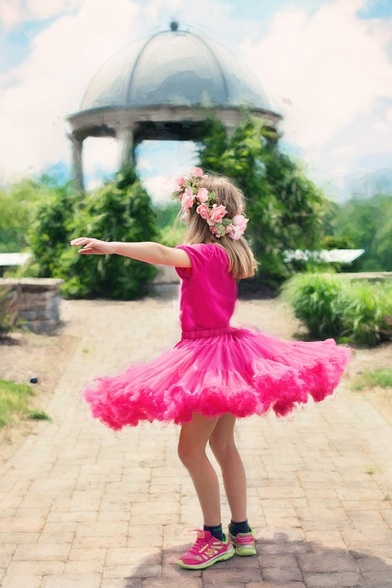 When I was a little girl, I loved spending my summer evenings swinging in our backyard. After dinner, I’d sit on the swing and pump my sneakers in the air, swinging higher and higher, trying to touch the twilight stars with my toes. The clouds looked like cotton candy, the brilliant blues and soft pinks streaking across an endless sky. As the sun faded, Mother Nature’s soundtrack intensified: frogs croaking, the breeze blowing through oak tree branches, crickets rubbing their legs together like violin bows and strings. Life was simple. Me and the swings and Mother Nature. I was content with the clouds and the crickets. I danced on the top of our wooden picnic table perched in front of our backyard oak tree. I hummed “Once Upon a Dream” from Disney’s Sleeping Beauty as I twirled, holding the tree’s branches in my fingertips as if the oak was my Prince Charming. I made crowns out of dandelions and wishes on the Magic Bridge, a dip in our ditch where my aunt encouraged me to make a wish as I crossed to the other side of the field. I picked bouquets of goldenrod and mouthed Spice Girls songs in my bedroom mirror, clothed in sequined dance costumes and unapologetic sass. I ate red, white and blue popsicles that stained my lips and mouth cherry red. Nowadays when I picture that girl wearing the dandelion crowns and sequined skirts, I feel protective. When I see my friend’s daughters wearing underwear on their head and laughing at the library and being silly and charming and THEM, I feel protective. Because I know what eventually happens: We grow up. Some grow up sooner than others. Some—due to circumstances or situations beyond their control— grow up sooner than they should. Society steps in and tells us that dandelions and goldenrod are actually weeds and are bad for allergies. Cotton candied skies turn so dark you can’t see the stars anymore. Sequins lose their luster. Whole hearts become broken. Lessons are learned. Wounds become scars, shiny and permanent. It’s part of this whole journey to adulthood-thing we must go through. Nobody leaves this world unscarred. I look at these younger generations of girls and know what they may face as the years go on, and a slow fire burns in my belly. A passion to help equip teenage girls and young women with positive messages to inspire self-confidence and strength to believe in themselves, to heal, to move forward. Because we’ve all been stuck. We’ve felt lost. Unsure of who we are and thinking back to the days of dandelion crowns and summer sunsets and swings when life felt more simple and you felt more like you. In 2009, I graduated from Central Michigan University with a degree in Interpersonal Communication. I took classes like Nonverbal Communication. Interpersonal Communication. Family Communication. I learned theories about people and why we act the way we do. I loved those classes so much I went on to get my master’s degree in Communication from CMU. My master’s thesis research focused on breakups; specifically, I interviewed how young women about their breakups and why they often changed their appearance (got a haircut, tattoo, new clothes) after a breakup. My thesis—those interviews—is one of my most favorite life experiences so far. So much so, that the research doesn’t ever leave the back of my mind, even after five years since writing the thesis. Those girls—their responses, their interviews, their strength—continues to inspire me. I am working on a new writing project. The goal is to publish a resource for teen girls and young women going through a breakup, as that is where my history, interest and former research focuses were targeted. That is where my passions remain. When girls and young women are alone in their bedrooms, feeling like their heart will never be whole and the pieces will never fit and the world will never see the sun, I want a resource to exist because we’ve all been there. We’ve all been snotty and red-faced and feeling so dang ALONE. I don’t like asking for things. I don’t like bothering people. I feel odd making requests. Uncomfortable feeling vulnerable as I lay my passions out on the table. But through this blog post, I make this request now, and I ask you to please listen with open ears and a willing heart: Can you help me? Maybe you are a teen or young adult woman who went through a hard breakup recently. Maybe you went through a challenging breakup that left you lost and confused as a teenager or young adult. Maybe you know someone—a daughter, a friend, a friend’s daughter, a niece, a granddaughter, a student—who has had an experience like this. I want to hear their—your—stories. Your breakup experience that was significant to you. It doesn’t matter if it happened years ago or last week. Names will be changed. Everything will be kept confidential and between you and me. You talk; I’ll listen. It doesn’t have to take place in person. You don’t have to answer anything you don’t want to. You can stop the interview at any time. To be honest, there’s no guarantee any of this will see anyone’s eyes besides mine. If you feel uncomfortable talking about a past relationship, don’t worry. I completely understand. But your story or experience may help someone else going through something similar right now. Your story may be relatable to another girl or young woman feeling the same feelings you felt. Even if you think your breakup experience isn’t “interesting” or “different” or “unique,” if you felt it had an impact on you, it IS unique because it’s yours. We all have a story, and I believe it is our sharing of stories that often inspire connection. Growth. Healing. If you are interested in participating or want to learn more, feel free to email me at: lindsayhenrywrites[at]gmail[dot]com. “And the day came when the risk to remain tightly closed in a bud was more painful than the risk to bloom.” -Anais Nin |
Archives
February 2023
|

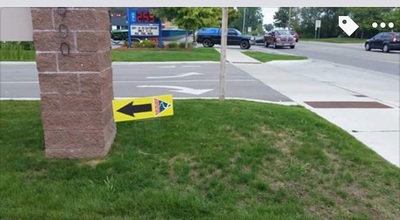
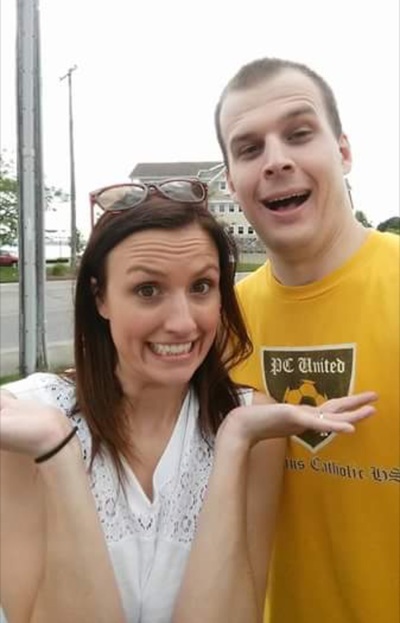
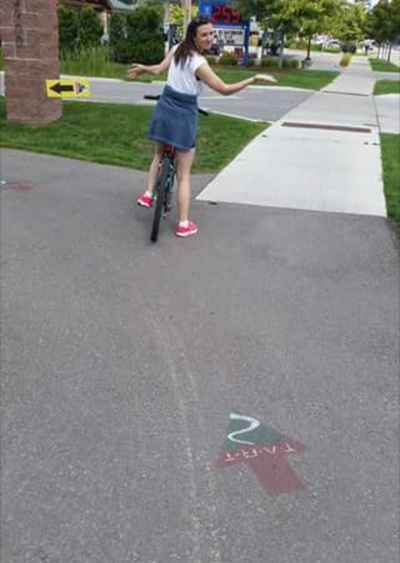
 RSS Feed
RSS Feed